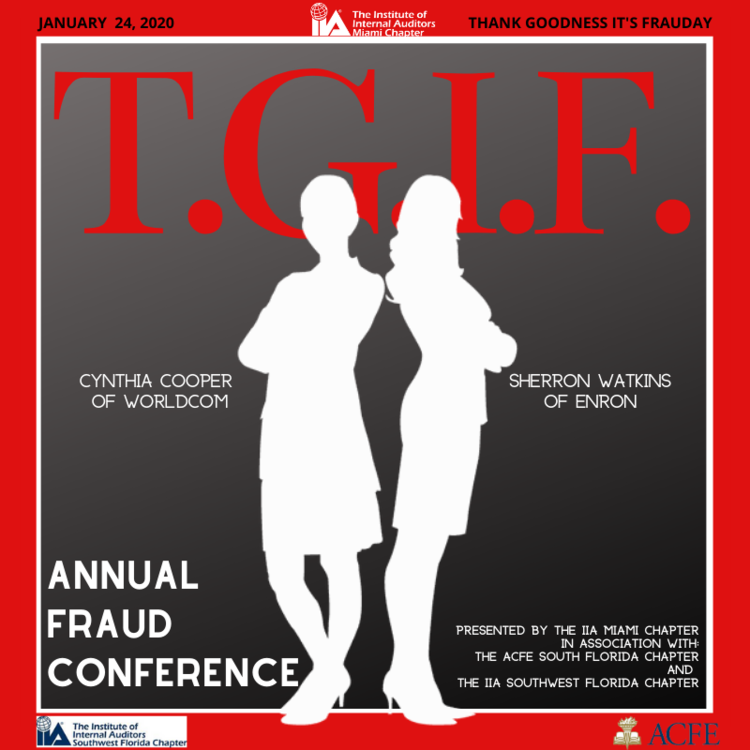| Session Information |
"T.G.I.F.: Thanks Goodness It's FraudDay January 24, 2020
Fraud lingers in the corners, behind your computers screens, and within hidden places. Fraud can thrive in places where the behavior is rationalized by a leadership team, but what is not always hidden is warning signs of ethical collapses. This can be uncovered from a whistleblower who is close enough to unravel the fraud. Imagine coming face to face with the whistleblowers at Enron and Worldcom to understand what they saw. Even when fraud is not yet prevalent, the auditor has a role to analyze fraud and can accomplish this through different techniques. There are methods to conducting admission-seeking interviews to obtain a successful outcome. In addition, root causes analysis is important to understand where breakdowns occur. Join a lineup of esteemed speakers as they discuss fraud, ethics, techniques for detecting fraud, and provide an in depth look at real life fraud cases.
Participants will:
- Discover common behaviors of fraud perpetrators and tools/techniques to identify fraud
- Understand the impact of fraud on a company’s culture
- Learn seven key behavioral red flags that are most likely to show up in an occupational fraud case
- Learn the role of Internal Audit in the aftermath of fraud and remediation efforts
- Discuss frauds that took place at Enron and Worldcom and common threads of recent corporate scandals
- Understand how non-fraud misconduct is associated with fraudulent behavior
- Identify steps to recognizing ethical dilemma and making the right choices
- Understand SOX and Dodd-Frank provisions to protect whistleblowers
- Distinguish the role of banks and auditors in Enron’s collapse
- Learn the role of Board Directors regarding fraud and ethical lapses from C-suite magnified in subordinates
- Learn effective methods to organize and plan an investigation and identify evidence
- Ascertain an effective approach to conducting a successful admission-seeking interview
- Determine best practices to use while composing an investigation report
- Understand root cause in fraud risk management and how the three lines of defense is used
- Identify root causes using proven techniques such as Socratic questioning
Participants will earn 8 CPE credits
Fields of Study: Auditing (4.5 CPEs) and Behavioral Ethics (3.5 CPEs)
Additional Information
Prerequisites: None
Who Should Attend: Auditors at all levels and other practitioners in various industries are welcome.
Advanced Preparation: None
Program Level: Basic
Delivery Method: Group Live
Refunds and Cancellations: If you have any questions regarding refund, concerns and program cancellation policies, please contact us at vpprograms@iiamiami.org. For questions specifically related to the IIA or chapter membership, please e-mail membership@iiamiami.org.
The Institute of Internal Auditors Miami (IIA) Chapter is registered with the National Association of State Boards of Accountancy (NASBA) as a sponsor of continuing professional education on the National Registry of CPE Sponsors. State boards of accountancy have final authority on the acceptance of individual courses for CPE credit. Complaints regarding registered sponsors may be submitted to the National Registry of CPE Sponsors through its website: www.nasbaregistry.org.


